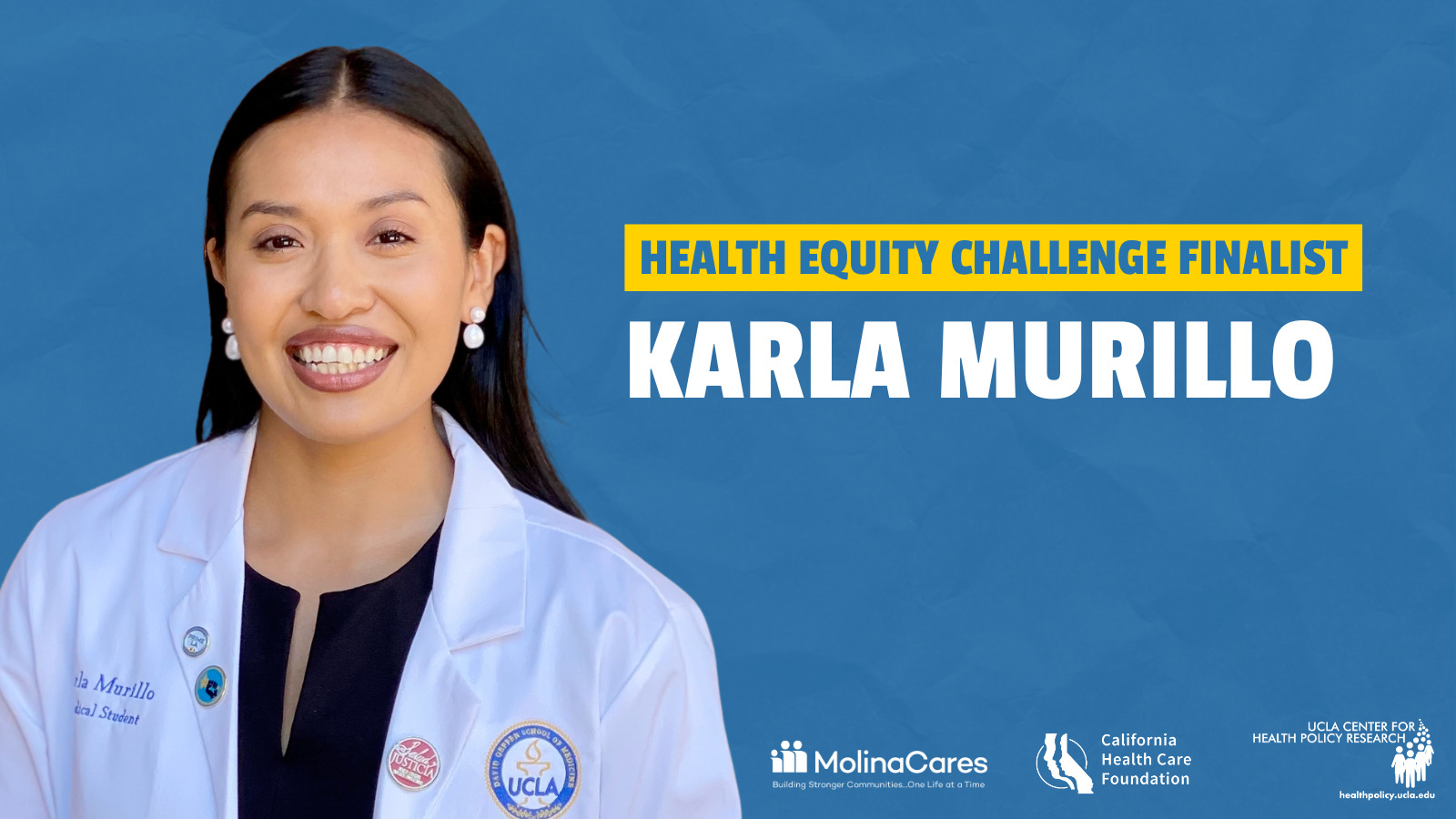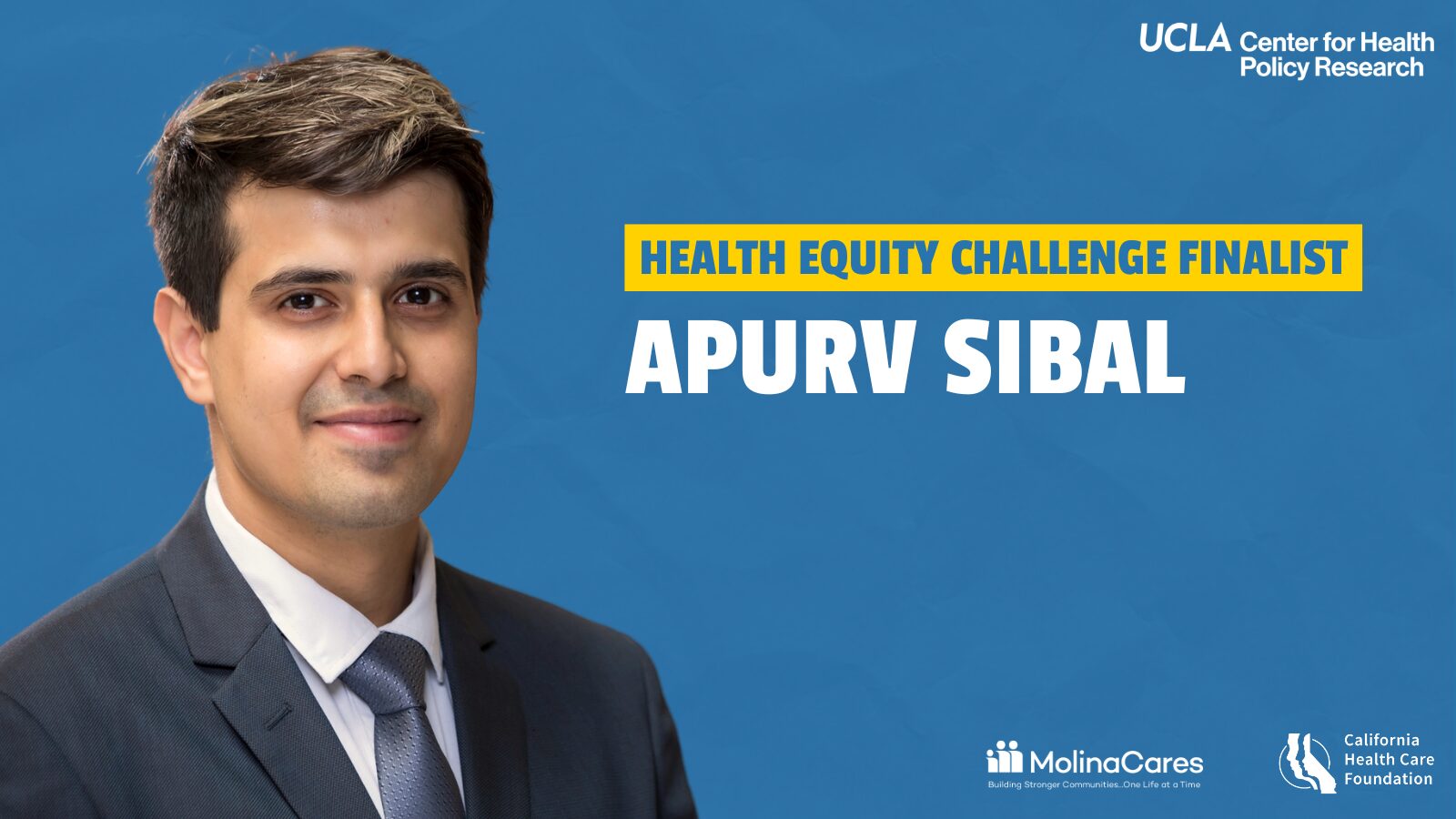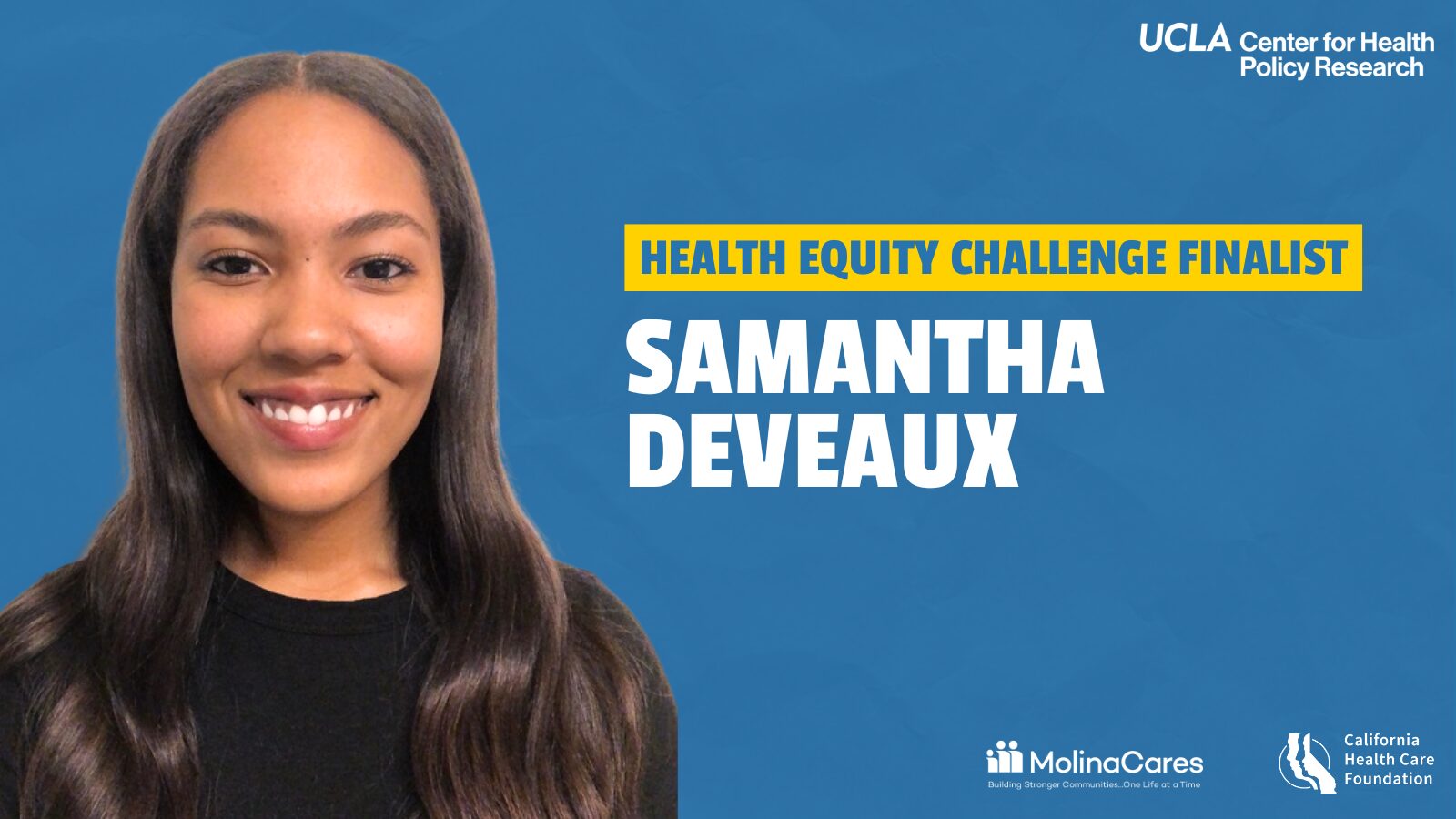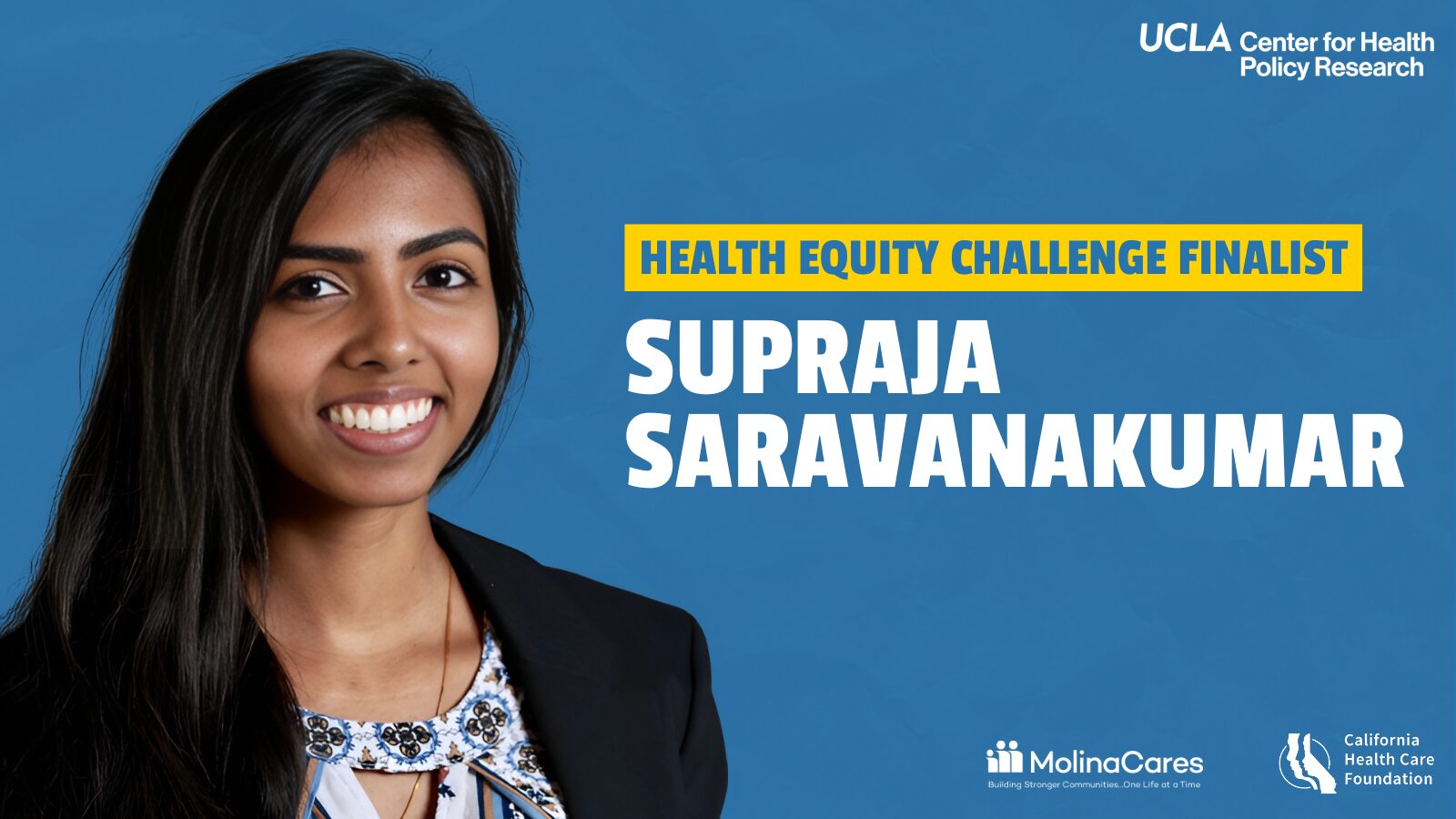
My mother has now been a farmworker for over 18 years in the Central Valley of California. Her jobs have ranged from seamstress in Downtown Los Angeles, to farmworker in Bakersfield. Helping my mother navigate the downstream consequences of her occupational exposures were the first lived experiences I had interacting with the world of public health. My mother, like many other Mexican immigrants, has endured unsafe, labor-intensive occupations to provide for my siblings and me. Despite our financial difficulties, my mother never expected for me to work during high school, which allowed me to focus on my studies and continue my path toward higher education.
Over 10 years ago, I began my undergraduate career at UCLA in the summer of 2012. As a first-generation college student, I was providing for myself and helping my family with finances. My only ability to explore careers in health was through work-study employment.
I began working for Dr. Kevin Riley, now the director of the UCLA Labor Occupational Safety and Health (LOSH). UCLA LOSH is a nonprofit organization that educates and trains a diverse employee population to ensure a safe and healthy work environment. As a work-study student, I managed and cross-referenced three databases, but Dr. Riley created an environment for me to learn and ask questions about occupational health, public health, and his career. Through informal exposure and conversations with Dr. Riley, I understood the importance of working conditions and the effect they often have on the health of under-resourced communities and immigrant workers, which I saw reflected in my mother’s own experiences as a farmworker. My work-study experience with UCLA LOSH was the first seed that many years later would influence the development of my Health Equity Challenge proposal.
After a few “enrichment years” after college, I confirmed my desire to pursue both medicine and public health. Committed to learn how to advocate for minoritized communities, increase diversity within medicine, and become a physician-leader, I began my medical education as a member of the UCLA Program in Medical Education — Leadership and Advocacy (PRIME-LA).
As the first to pursue medicine in my immediate and extended family, I learned a lot about different medical specialties from the internet. Luckily, I came across a YouTube video about the American Academy of Ophthalmology’s Minority in Ophthalmology Mentoring Program. I began exploring ophthalmology, a surgical subspecialty that deals with diagnosis and treatment of eye diseases.
My first clinical exposure to ophthalmology was as a volunteer with the UCLA Mobile Eye Clinic (UMEC) thanks to Dr. Anne L. Coleman, Chair of the Department of Ophthalmology and Dr. Ken Kitayama, EyeSTAR Resident. UMEC serves the greater Los Angeles area and provides free vision care as the longest-running eye clinic on wheels. Many of the communities we provide care to are primarily Latine and Spanish-speaking, like my community. Volunteering shifts at UMEC allowed me to see the public health work and community outreach that can be done within ophthalmology. UMEC consistently demonstrated the importance of increasing access to ophthalmic care and vision-restoring interventions, which has driven me toward pursuing epidemiologic public health research as a tool to advocate for increased resources in minoritized communities.
Once I learned about the UCLA Health Equity Challenge, I immediately thought about expanding UMEC services to jornaleros or day laborers. Jornaleros or day laborers are primarily undocumented men from Latin America. Day laborers typically await potential employers on street corners, at home improvement stores, or at hiring centers for jobs that may entail construction, landscaping, or moving. Given the nature of being a jornalero, they are at increased risk of occupational injuries and more specifically, eye injuries.
“Day laborers typically await potential employers on street corners, at home improvement stores, or at hiring centers for jobs that may entail construction, landscaping, or moving. Given the nature of being a jornalero, they are at increased risk of occupational injuries and more specifically, eye injuries.”
Working for Dr. Riley at UCLA LOSH had a long-lasting impact and I knew he would be the person to talk to in order to find a local organization that is trusted by jornaleros given the occupational dangers they face and lack of access to care. Dr. Riley helped me solidify reaching out to the Institute of Popular Education of Southern California (IDEPSCA) and encouraged me to keep occupational health as I go through my career.
IDEPSCA is a nonprofit that organizes and educates immigrants to solve problems in their own communities. IDEPSCA operates five Day Laborer Community Job Centers located throughout Los Angeles in downtown, Van Nuys, Cypress Park, Hollywood, and Harbor City. The Day Laborer Program Community Job Centers provide a humane way to look for work and offer information about health, labor, and immigrant laws. These centers also function as a public safety alternative to soliciting employment on the street corners and suffering from severe exploitation and unsafe working conditions.
Our proposed Health Equity Challenge proposal is titled Integrated Screening Eye Exams – Los Angeles, (iSEE-LA). iSEE-LA will expand on current population that the UMEC serves to include jornaleros through partnership with IDEPSCA. In addition to increasing access to vision care for undocumented and uninsured folks, we will improve education and primary prevention efforts through a practical eye safety campaign to teach day laborers the importance of eyewear protection and the dangers of ocular occupational exposures they face.
IDEPSCA and UMEC have identified common goals to work toward which go beyond providing immediate services to jornaleros. If awarded, IDEPSCA and UMEC will work hand in hand to collect information from jornaleros and advocate for increased health programs at IDEPSCA with support from the county and state. This powerful collaboration requires both UMEC and IDEPSCA to serve jornaleros, collect, and analyze data to ultimately inform effective policy interventions to strive toward health equity.

By Karla Murillo
2023 Health Equity Challenge Finalist
Karla Murillo is a first-generation medical student at the UCLA Program in Medical Education — Leadership and Advocacy (PRIME-LA). She was raised in Bakersfield, CA, and is the daughter of Mexican immigrants. She volunteers with the UCLA Mobile Eye Clinic to deliver free vision care to under-resourced communities in Greater Los Angeles. She intends to become an ophthalmologist and continue to engage in ophthalmic epidemiologic research to impact policy and provide equitable vision care to underresourced communities.
continue reading
Related Posts
As many as 50% of blind high school students drop out of high school and COVID only exacerbated this problem.
Coming from a low-income community of color, I personally witnessed how generations of systemic racism and economic corruption have led to a powerful mistrust in the health care system.
Postpartum depression (PPD) is a silent struggle for many new mothers, but for South Asian women, cultural stigmas and generational pressures often exacerbate this already challenging condition. As a woman of color and a first-generation college graduate, I have walked a path shaped by the nuances of both my cultural heritage and my academic pursuits.



